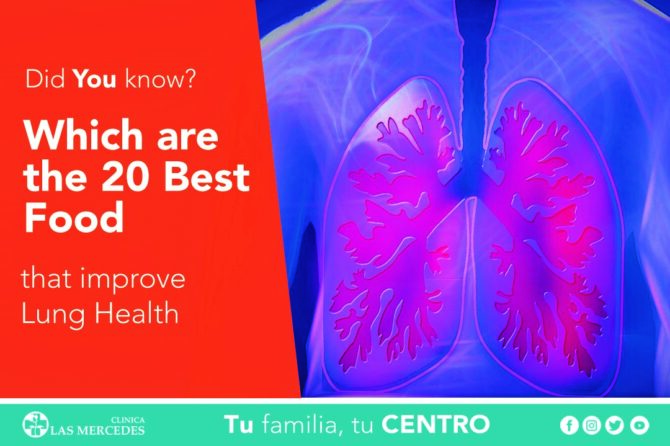
The 6 Best Foods for Lung Health
Keeping your lungs healthy is essential to feeling your best. Yet, common factors, including exposure to cigarette smoke and environmental toxins, as well as eating an inflammatory diet, can take a toll on this pair of important organs.
What’s more, common conditions, such as asthma, chronic obstructive pulmonary disease (COPD), and pulmonary fibrosis, can significantly affect your quality of life.
However, research has shown that lifestyle modifications, including following a nutrient-rich diet, can help protect your lungs and even reduce lung damage and symptoms of disease.
What’s more, specific nutrients and foods have been identified to be particularly beneficial for lung function.
Here are 20 foods that may help lung health.
1. Beets and beet greens
The vibrantly colored root and greens of the beetroot plant contain compounds that optimize lung function.
Beetroot and beet greens are rich in nitrates, which have been shown to benefit lung function. Nitrates help relax blood vessels, reduce blood pressure, and optimize oxygen uptake.
Beetroot supplements have been shown to improve physical performance and lung function in people with lung conditions, including COPD and pulmonary hypertension, a disease that causes high blood pressure in the lungs.
Additionally, beet greens are packed with magnesium, potassium, vitamin C, and carotenoid antioxidants — all of which are essential to lung health.
2. Peppers
Peppers are amongst the richest sources of vitamin C, a water-soluble nutrient that acts as a powerful antioxidant in your body. Getting enough vitamin C is especially important for those who smoke.
In fact, due to the damaging effects of cigarette smoke on your body’s antioxidant stores, it’s recommended that people who smoke consume an extra 35 mg of vitamin C per day.
However, many studies show that smokers may benefit from higher doses of vitamin C and that smokers with high vitamin C intake have better lung function than those with lower vitamin C intake.
Consuming just one medium-sized (119-gram) sweet red pepper delivers 169% of the recommended intake for vitamin C.
3. Apples
Research has shown that regularly eating apples may help promote lung function.
For example, studies show that apple intake is associated with a slower decline in lung function in ex-smokers. Additionally, consuming five or more apples per week is associated with greater lung function and a reduced risk of developing COPD.
Apple intake has also been linked to a lower risk of asthma and lung cancer. This may be due to the high concentration of antioxidants in apples, including flavonoids and vitamin C.
4. Pumpkin
The brightly colored flesh of pumpkins contains a variety of lung-health-promoting plant compounds. They’re especially rich in carotenoids, including beta carotene, lutein, and zeaxanthin — all of which have powerful antioxidant and anti-inflammatory properties.
Studies show that having higher blood levels of carotenoids is associated with better lung function in both older and younger populations.
People who smoke may significantly benefit from consuming more carotenoid-rich foods like pumpkin.
Evidence suggests that smokers may have 25% lower concentrations of carotenoid antioxidants than nonsmokers, which can harm lung health.
5. Turmeric
Turmeric is often used to promote overall health due to its potent antioxidant and anti-inflammatory effects. Curcumin, the main active component in turmeric, may be especially beneficial for supporting lung function.
A study in 2,478 people found that curcumin intake was associated with improved lung function. Plus, the lung function of smokers who had the highest intake of curcumin was significantly greater than smokers who had low curcumin intake.
In fact, high curcumin intake in smokers was associated with 9.2% greater lung function, compared with smokers who did not consume curcumin.
6. Lentils
Lentils are high in many nutrients that help support lung function, including magnesium, iron, copper, and potassium.
The Mediterranean diet, which has been associated with promoting lung health, is high in legumes like lentils.
Research has shown that following a Mediterranean dietary pattern can preserve lung function in people who smoke. Plus, eating fiber-rich lentils may help protect against lung cancer and COPD.
The bottom line
Consuming a diet high in nutritious foods and beverages is a smart way to support and protect lung health.
Coffee, dark leafy greens, fatty fish, peppers, tomatoes, olive oil, oysters, blueberries, and pumpkin are just some examples of foods and drinks that have been shown to benefit lung function.
Try incorporating a few of the foods and beverages listed above into your diet to help support the health of your lungs.
From: Healthline.com



I’m Ian Venamore I was diagnosed with chronic obstructive pulmonary disease (COPD) in my mid-fifties. Today I’m an active volunteer member of Lung Foundation Australia and chair of the associated COPD Patient Advocacy Group (CPAG).I also participates in international meetings with the goal to change the future of COPD recognition, diagnosis and treatment.I am a strong advocate for pulmonary rehabilitation and attends to gym classes “religiously.” I am also a firm believer in and proponent of patient education and self management. I obtain this cure from an Africa home of herbal roots for traditional treatment and they are 100% active and effective,which make it very difficult for science to discover or believe this traditionally cure, try your luck if you are CHRONIC OBSTRUCTIVE PULMONARY DISEASE Patient, their contact is as follow. healthmedlabclinic1@gmail.com their Website: http://www.healthmedlabclinic.weebly.com recommended by Ian Venamore their satisfied previous COPD cured patient a living witness.
ReplyHi, I have just been diagnosed with Pulmonory hypertension. Do you have any natural remedies to help. Thanks
ReplyA reusable face masks made from synthetic materials, being lighter and with lower environmental impacts in some impact categories, show better environmental performance than single-use face masks
ReplyWhat is the Purpose of Blepharoplasty? Eyelid surgery can help reshape and tighten the area around the eyes. … Eyelid Surgery: Blepharoplasty https://turkeymedicals.com/face-lift/eyelid-surgery-blepharoplasty
Reply